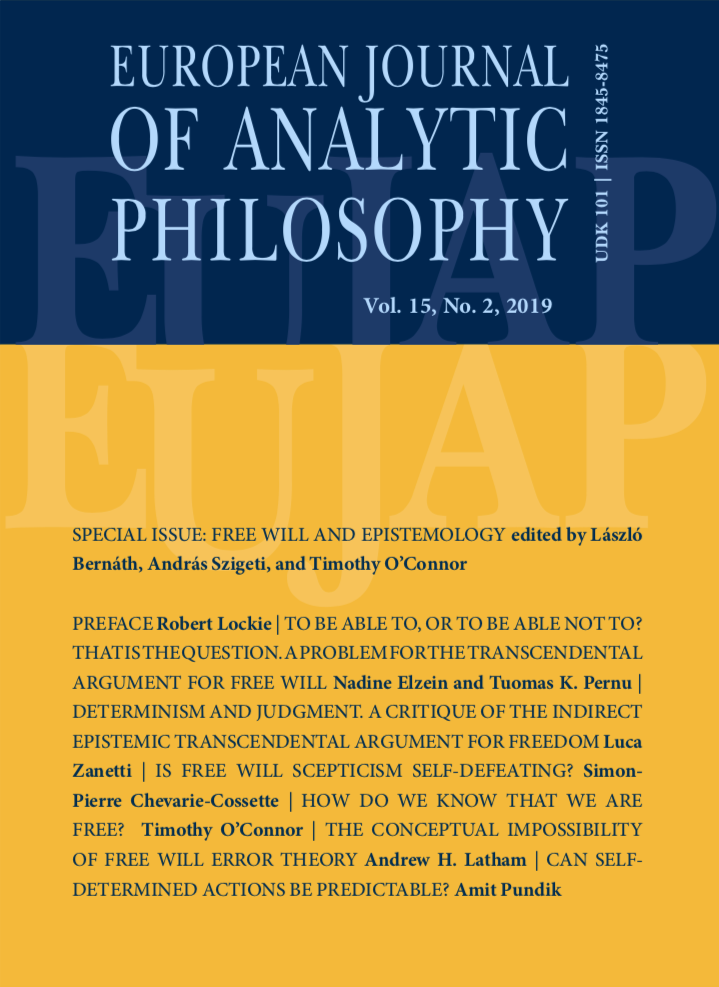View the whole issue here
- Is Love Based On Reasons
Dalia DraiPages: 5-26 | Abstract
The aim of the paper is to understand what is involved in the claim that a mental state in general and love in particular, is based on reasons. Love, like many other mental states, can be evaluated in various ways: it can be considered appropriate, deserved, enriching, perverse, destructive etc. but this does not mean that love is based on reasons. In this paper I present and defend a test that a mental state has to satisfy if it is to count as based on reasons. This test will be used to construct a new argument in favour of Frankfurt’s position that love is not based on reasons. - Here Goes Nothing
Barry LeePages: 27-45 | Abstract
Subtraction arguments (SAs) support the view that there might have been nothing. The best-developed SA to date, due to David Efird and Tom Stoneham, is claimed by its authors to entail that there are worlds in which there are space-time points but no concrete objects: Efird and Stoneham hold that space-time points are not concrete and that a world made up from them alone contains nothing concrete. In this paper it is argued that whole space-times are concrete and subtractable, so that a subtraction argument commits us to a bolder conclusion: namely, that there are worlds in which there is no space-time (and nothing else concrete). This result has far-reaching consequences: it supports the view that there might have been no time; and constrains accounts of possible worlds. In the course of developing this revised subtraction argument, I counter suggestions (made by Ross Cameron, amongst others) that SAs are question-begging. - Relative Modality and the Ability to do Otherwise
Ralph Stefan WeirPages: 47-61 | Abstract
It is widely held that for an action to be free it must be the case that the agent can do otherwise. Compatibilists and incompatibilists disagree over what this ability amounts to. Two recent articles offer novel perspectives on the debate by employing Angelika Kratzer’s semantics of ‘can’. Alex Grzankowski proposes that Kratzer’s semantics favour incompatibilism because they make valid a version of the Consequence Argument. Christian List argues that Kratzer’s semantics favour a novel form of compatibilism. I argue that List’s compatibilist application of Kratzer’s semantics faces problems not faced by Grzankowski’s incompatibilist employment of them. On the other hand I argue that Kratzer’s semantics make Grzankowski’s version of the Consequence Argument valid only at the cost of rendering it dialectically useless. Contrary to both views Kratzer’s semantics do not appear to add substantial weight to either side of the compatibilism/incompatibilism dispute. - One Second per Second Multiplied by One Second
Claudio MazzolaPages: 63-75 | Abstract
Detractors of temporal passage often argue that it is meaningless to say that time passes or flows, else time would have to pass at a rate of one second per second, which is in fact not a rate but a number, namely one. Several attempts have been recently made to avoid this conclusion, by retorting that one second per second is in fact not identical to one. This paper shows that this kind of reply is not satisfactory, because it demands a substantive revision of the algebraic behaviour of quantities.

